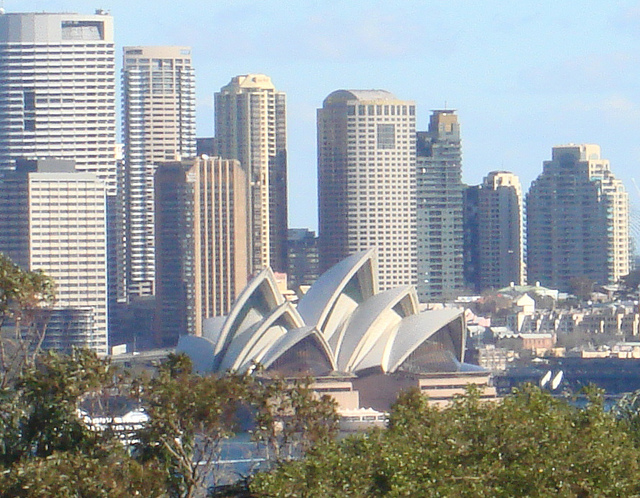A little over a year ago, Yorkshire, UK electronics engineer Adrian Hill faced the prospect of redundancy or the chance of a job in New Zealand. The Yorkshire Post reports on one man's new life in New Zealand.
Almost 14 months down the line, having moved to picturesque Lower Hutt, on the country's north island, against his every instinct, the 31-year-old now has a lifestyle which he says he would not swap for the world, despite a love of the Yorkshire Dales, Headingley cricket, Tetley bitter and all the usual iconic images of homeland.
And he is not alone. In 2006, according to major tour operators and the New Zealand immigration agency, a record number of Brits will be heading for the land of Maoris and Mount Cook, fuelled by films such as Lord of the Rings and King Kong, and forthcoming attractions such as the Rugby World Cup in 2011.
"I was of course apprehensive about making the move," says Leeds-born Adrian who swapped the Broad Acres for the Bay of Plenty, Rotorua and balmy Tauranga, which receives over 2,200 hours of sunshine even in a poor year.
"I'm single – which helps to a certain degree – and also have a trade, so when the chance came, albeit not through choice, I jumped, and considered what did I have to lose?
"But I fell in love with the place and have recently become a resident. The vibrancy of the towns and cities – which are still colonial in feel – is infectious, and the outdoor sporting opportunities are tremendous.
"The bottom line of course, whether you work for yourself or for someone else, is that you have to demonstrate a value for being here – but the difference is the work ethic that exists.
"While we all need to make money, the competitive edge is not as cut-throat as in the UK, and it's almost like Britain some years ago – if a shopkeeper can't sell you the thing you need, he will often advise you to go to a competitor, out of kind-heartedness rather than profit – something which seems increasingly alien to British ways in the 21st century.
"There is a certain altruism which hasn't yet been eroded by either an Americanisation of culture, or whatever you wish to call it; I think it will come, but it is at least five years away at a guess.
"Of course, I miss home; but this is the nearest place I know to Britain of old."
Last year, more than 25,000 Brits headed for New Zealand, and while blockbuster movies have certainly been a showcase for the country's spectacular scenery, they are not the only reason.
"Long-haul destinations are less daunting thanks to faster and cheaper air travel," says Rebecca Holloway of Travel PR, who specialise in the promotion of New Zealand. "Secondly, British travellers are becoming more and more adventurous, and look for more than sun, sea and sand from their holiday.
"For the original backpacker generation, which has grown up but still wants to explore, New Zealand can offer plenty of new experiences – from Maori culture to unique landscapes and local food and wine to high-adrenalin activities.
"Statistics show that UK visitors have increased by nearly 50 per cent since 2002, the year after the first of the Lord of the Rings trilogy was released, and an international visitors survey carried out in March last year showed 87 per cent of people were aware that the films were shot in New Zealand, with 112,603 naming the films as a reason to visit the country.
"This year the numbers are likely to plateau – however, the effects of King Kong, The Chronicles of Narnia (released in December) and The World's Fastest Indian (due for release in February) have yet to be seen, and the news that New Zealand will be hosting the Rugby World Cup 2011 will also give numbers another boost."
Since the early 1980s, when New Zealand was home to over 70 million sheep, the woolly population has declined to around 40 million, but they still outnumber humans 10 to one. The statistics means the country has vast open spaces, and with the moderating effect of the ocean, summer and winter temperatures differ by less than 10C.
"If you're British, you have a good chance of settling successfully in New Zealand," adds a spokesman for ENZ, the immigration specialist web site. "About 70 per cent of recently-arrived British people are still here five years later. If you 'survive' those first five years, it's highly likely you'll stay much longer. In fact, 90 per cent of British people who live here for five years then stay on for at least another five."
Those with degrees tend to flourish in New Zealand.
Teachers can expect to earn between $NZ 40,000-70,000,(£16,000 to £28,000) engineers up to $NZ 100,000 (£40,000)-plus and solicitors up to $200,000 (£80,000), and, at the lower end of the scale, New Zealand needs its fruit picked so badly that people who come as tourists can be approved to work as fruit pickers within 48 hours.
With the country's skills shortages also growing more severe, particularly in the areas of structural engineering, psychiatry, nursing, civil engineering, finance and architecture, 2006 may not be a bad time to pack your bags and head to the other side of the world.
"Research shows 87 per cent of principal applicants for the Skilled Migrant Category either had a job or an offer of skilled employment in New Zealand," says Minister of Immigration, David Cunliffe.
"These are typically high-quality applicants contributing immediately to the labour market. In the coming year I want to see an even stronger focus on skills that will contribute even more to New Zealand's productivity and growth, as well as address significant labour shortages."
The report found that 88 per cent of principal applicants approved for residence in 2004/05 had previously held visitor, work or student permits.
"This research is useful because the more we know about the type of migrants that come here, what they do and where they settle, the better it will be for New Zealand and future migrants," Mr Cunliffe said.
Findings of the research report showed a strong relationship between temporary work permits and residence and a well-balanced spread of both countries of origin and regional settlement within New Zealand.
"This provides evidence that the current immigration programme is delivering benefits to the New Zealand economy."




